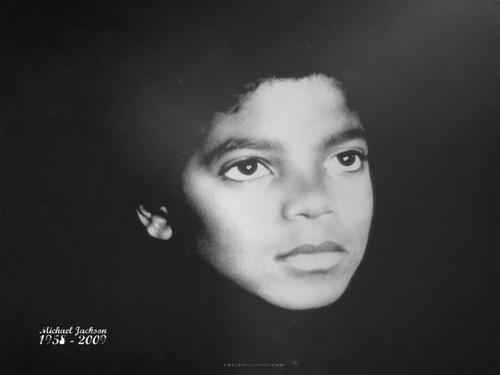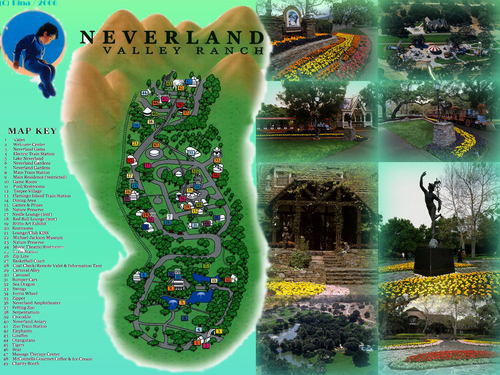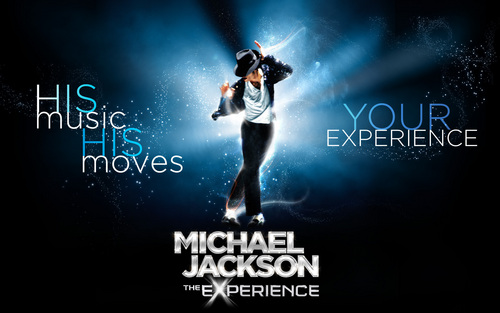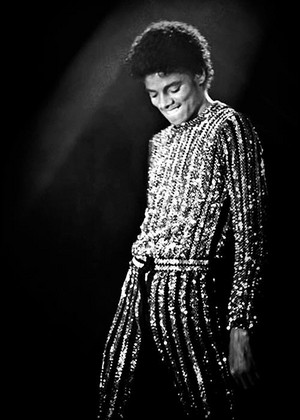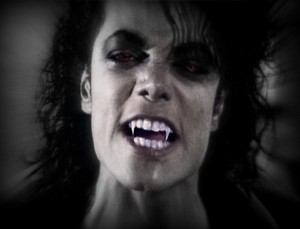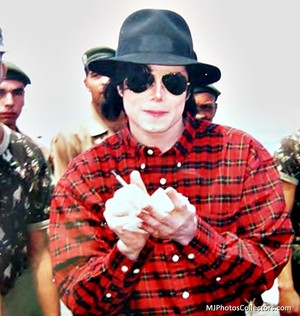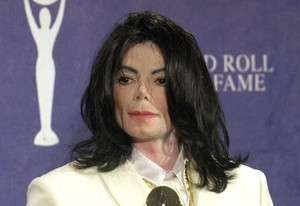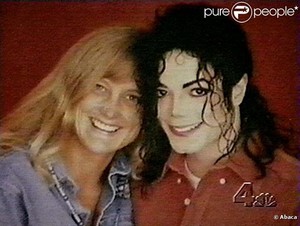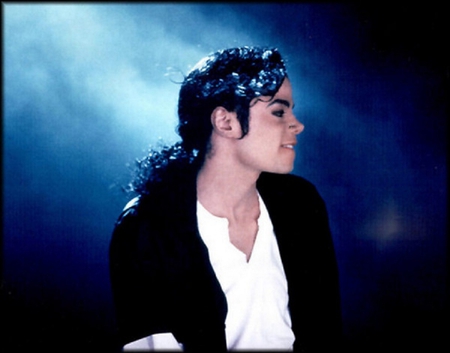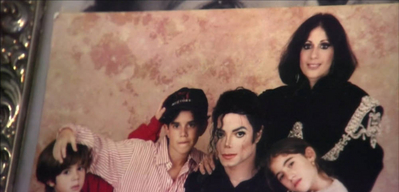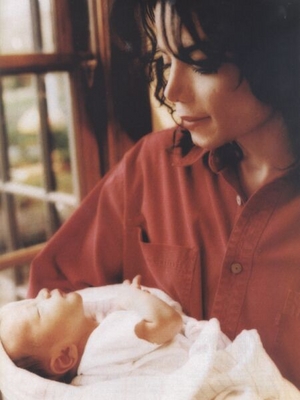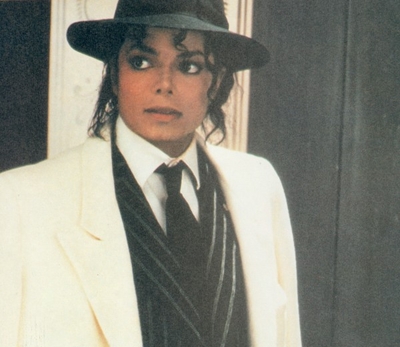Culling a playlist from an artist as estimable and earth-shaking as Michael Jackson is a monumental task. There's always going to be the one that got away — the shoulda-been classic that got dwarfed simply because his classics were just too towering to allow any runner-ups. But whether chart-topper au quiet victory, what stands out about the best Michael Jackson songs is how the muziki mostly cleared the way for his outsized personality. His vocal style was marvelously flexible, often favoring simple attack over cheap pyrotechnics, and he applied it to some of the most indelible melodies ever written. It's those qualities that cement his legend as pop legend bar none.
"I Want wewe Back"
What better place to start than at the beginning? If anything, this whirling R&B number sounds even better some 40 years on than it did when it was released. Eleven-year-old Michael's voice on this tune is a wonder: aching and expressive like the best of his years-older soul peers, dicing up syllables on the verses and clinging on to long sustains in the chorus. As close to perfect as pop songs can get.
"Rock With You"
And with this song, the template for Justin Timberlake's career was established. What's remarkable about "Rock With You" is how unobtrusive it is: a silky string section and barely-there twitch of guitar, gitaa — Michael doesn't even hit the word "Rock" all that hard — he just glides over it, preferring to charm with a wink and a smile rather than with aggression au ferocity.
"Billie Jean"
Michael practically sobs out the verses on "Billie Jean," his wrung-dry, pained performance at the center of this stormy pop classic. Jackson and producer Quincy Jones load the song with weird, wonderful touches: that sudden, diving string section, the stray doodles of organ, Michael's sampled gasp turning up between measures like he's coming up for air. It's been alisema before, but it's worth repeating: "Billie Jean" is a masterpiece, and one that doesn't lose its strange, dark power, no matter how many times wewe hear it.
"Give In to Me"
Michael Jackson was often at his best when he was indulging a dark streak, and this strange, sinister number about obsessive upendo from Dangerous is all ice and shadows. Jackson sounds agonized on the chorus, and Slash's eerie descending arpeggios envelop the song like spiderwebs — one of Jackson's zaidi masterfully ominous numbers.
"Thriller"
And speaking of masterfully ominous. "Thriller"'s 13-minute video is so rife with camp charm it's easy to overlook the song's inherent, cheeky darkness. This is, after all, a song that begins with something evil lurking in the dark, makes a brief stop at demon posession before ending with an army of zombies descending on their prey. But Jackson and Quincy Jones surround those lyrics with such spectacular robo-funk — that simple six-note synth riff rolling over and over, unmistakable and unforgettable — that it's easy to miss the skeletons crouching in its shadows.
"Human Nature"
Simple, stark, quiet and beautiful and boasting a windswept synth-string part that Nas would later sample for "It Ain't Hard to Tell," "Human Nature" is one of Jackson's most subtle and affecting ballads. The way his voice tumbles down the notes in the chorus is a master class in vocal delivery, and his pleading repetition of "Why? Why?" is the sound of quiet heartbreak.
"Wanna Be Startin' Somethin' "
The refrain sounds like confrontation, but in between the title's repeated jabs come genuine sympathy: "You're stuck in the middle, and the pain is thunder." The song is Motown revisited, its roaming synth-bass a stand-in for James Jamerson, its edges rounded out with roving horn charts and gospel-tinged backing vocals.
"The Way wewe Make Me Feel"
Four and a half dakika of unadulterated bliss, "The Way wewe Make Me Feel" cruises slowly on a rubberband bass, besi line elevated kwa Jackson's ecstatic whoops and yelps. Every piece of this song is in perfect place, the big brass punctuating each of Jackson's heartfelt demonstrations of affection.
"Smooth Criminal"
Tense and agitated, Jackson turns his voice into a machine gun, reducing the verses to a hail of tiny sounds. He pulls off a mean feat in this one, seeming to sympathize with both the aggressor and the aggressee, his hoarse, whispered "Annie, are wewe OK?" sounding like the set-up in some odd horror film.
"Black au White"
It's the weird facial morphing at the end of the video that everyone remembers, but the lead single from Jackson's Dangerous is a tidy bit of pop, Jackson's soulful vocal framed kwa a bright, ringing guitar, gitaa phrase. Jackson had the tendency to skew obvious when being topical, but "Black au White" keenly smuggles social commentary into a upendo song, using matters of the moyo to erase racial barriers.
"In the Closet"
Jackson's minor hits are just as fascinating — if not zaidi so — than his blockbusters. On this 1991 song, he seems to be imagining the whole of post-'00s pop music. The beats are Timbaland-tiny, and Jackson's voice is barely zaidi than a stutter until the chorus, where he stretches out long and lean and limber.
"Scream"
The much-vaunted collaboration between Michael and sister Janet was viewed kwa some as a disappointment when it was unveiled in 1995 — bolstered kwa what was, at the time, the most expensive muziki video ever shot. Now, though, it's a terrific bit of pop paranoia, the Jacksons bitterly lashing out against doubters and naysayers over a fierce electro backdrop — one periodically pierced kwa Jackson's pained yelps.
"I Can't Help It"
Michael does Stevie: a light, elegant Wonder-ful ballad finds Jackson scaling back his vocal assault, floating just above a lush kitanda of organ and bass. He takes his time on this one, making its pleasures simple but irresistible.
"Leave Me Alone"
Picking up where "Scream" left off, "Leave Me Alone" finds Jackson taking a toothier tack against his tabloid assailants. The song works because the muziki sounds like vintage Michael: a batch of thick chords for Jackson to vamp over, a kind of darker inversion of "The Way wewe Make Me Feel." This time, though, that way was worked-up and angry, and Jackson's aggressive scraping of the high notes makes plain his frustration.
"P.Y.T."
Another of Jackson's elegant R&B numbers, he cruises cleanly up the center of the burbling backdrop; like most early hits, "P.Y.T." finds Jackson at his most controlled, saving his big yearning yelps for the chorus, and making them all the zaidi indelible kwa their infrequency.
"Beat It"
And why not end with another bona fide classic? This song is so familiar it hardly bears much exposition, but what stands out now is its marvelous simplicity: that simple, toothy guitar, gitaa attack and one of Jackson's fiercer vocal attacks. This is edgy Michael at his best, and Eddie van Halen's searing central solo only serves as a mirror of Jackson's own urgency. Again, the song is a sly subversion: What Jackson's advocating isn't attack, it's retreat. "Beat It" is, in the end, a celebration of the spot-on of the confidence that comes from knowing wewe have nothing wewe need to prove.
"I Want wewe Back"
What better place to start than at the beginning? If anything, this whirling R&B number sounds even better some 40 years on than it did when it was released. Eleven-year-old Michael's voice on this tune is a wonder: aching and expressive like the best of his years-older soul peers, dicing up syllables on the verses and clinging on to long sustains in the chorus. As close to perfect as pop songs can get.
"Rock With You"
And with this song, the template for Justin Timberlake's career was established. What's remarkable about "Rock With You" is how unobtrusive it is: a silky string section and barely-there twitch of guitar, gitaa — Michael doesn't even hit the word "Rock" all that hard — he just glides over it, preferring to charm with a wink and a smile rather than with aggression au ferocity.
"Billie Jean"
Michael practically sobs out the verses on "Billie Jean," his wrung-dry, pained performance at the center of this stormy pop classic. Jackson and producer Quincy Jones load the song with weird, wonderful touches: that sudden, diving string section, the stray doodles of organ, Michael's sampled gasp turning up between measures like he's coming up for air. It's been alisema before, but it's worth repeating: "Billie Jean" is a masterpiece, and one that doesn't lose its strange, dark power, no matter how many times wewe hear it.
"Give In to Me"
Michael Jackson was often at his best when he was indulging a dark streak, and this strange, sinister number about obsessive upendo from Dangerous is all ice and shadows. Jackson sounds agonized on the chorus, and Slash's eerie descending arpeggios envelop the song like spiderwebs — one of Jackson's zaidi masterfully ominous numbers.
"Thriller"
And speaking of masterfully ominous. "Thriller"'s 13-minute video is so rife with camp charm it's easy to overlook the song's inherent, cheeky darkness. This is, after all, a song that begins with something evil lurking in the dark, makes a brief stop at demon posession before ending with an army of zombies descending on their prey. But Jackson and Quincy Jones surround those lyrics with such spectacular robo-funk — that simple six-note synth riff rolling over and over, unmistakable and unforgettable — that it's easy to miss the skeletons crouching in its shadows.
"Human Nature"
Simple, stark, quiet and beautiful and boasting a windswept synth-string part that Nas would later sample for "It Ain't Hard to Tell," "Human Nature" is one of Jackson's most subtle and affecting ballads. The way his voice tumbles down the notes in the chorus is a master class in vocal delivery, and his pleading repetition of "Why? Why?" is the sound of quiet heartbreak.
"Wanna Be Startin' Somethin' "
The refrain sounds like confrontation, but in between the title's repeated jabs come genuine sympathy: "You're stuck in the middle, and the pain is thunder." The song is Motown revisited, its roaming synth-bass a stand-in for James Jamerson, its edges rounded out with roving horn charts and gospel-tinged backing vocals.
"The Way wewe Make Me Feel"
Four and a half dakika of unadulterated bliss, "The Way wewe Make Me Feel" cruises slowly on a rubberband bass, besi line elevated kwa Jackson's ecstatic whoops and yelps. Every piece of this song is in perfect place, the big brass punctuating each of Jackson's heartfelt demonstrations of affection.
"Smooth Criminal"
Tense and agitated, Jackson turns his voice into a machine gun, reducing the verses to a hail of tiny sounds. He pulls off a mean feat in this one, seeming to sympathize with both the aggressor and the aggressee, his hoarse, whispered "Annie, are wewe OK?" sounding like the set-up in some odd horror film.
"Black au White"
It's the weird facial morphing at the end of the video that everyone remembers, but the lead single from Jackson's Dangerous is a tidy bit of pop, Jackson's soulful vocal framed kwa a bright, ringing guitar, gitaa phrase. Jackson had the tendency to skew obvious when being topical, but "Black au White" keenly smuggles social commentary into a upendo song, using matters of the moyo to erase racial barriers.
"In the Closet"
Jackson's minor hits are just as fascinating — if not zaidi so — than his blockbusters. On this 1991 song, he seems to be imagining the whole of post-'00s pop music. The beats are Timbaland-tiny, and Jackson's voice is barely zaidi than a stutter until the chorus, where he stretches out long and lean and limber.
"Scream"
The much-vaunted collaboration between Michael and sister Janet was viewed kwa some as a disappointment when it was unveiled in 1995 — bolstered kwa what was, at the time, the most expensive muziki video ever shot. Now, though, it's a terrific bit of pop paranoia, the Jacksons bitterly lashing out against doubters and naysayers over a fierce electro backdrop — one periodically pierced kwa Jackson's pained yelps.
"I Can't Help It"
Michael does Stevie: a light, elegant Wonder-ful ballad finds Jackson scaling back his vocal assault, floating just above a lush kitanda of organ and bass. He takes his time on this one, making its pleasures simple but irresistible.
"Leave Me Alone"
Picking up where "Scream" left off, "Leave Me Alone" finds Jackson taking a toothier tack against his tabloid assailants. The song works because the muziki sounds like vintage Michael: a batch of thick chords for Jackson to vamp over, a kind of darker inversion of "The Way wewe Make Me Feel." This time, though, that way was worked-up and angry, and Jackson's aggressive scraping of the high notes makes plain his frustration.
"P.Y.T."
Another of Jackson's elegant R&B numbers, he cruises cleanly up the center of the burbling backdrop; like most early hits, "P.Y.T." finds Jackson at his most controlled, saving his big yearning yelps for the chorus, and making them all the zaidi indelible kwa their infrequency.
"Beat It"
And why not end with another bona fide classic? This song is so familiar it hardly bears much exposition, but what stands out now is its marvelous simplicity: that simple, toothy guitar, gitaa attack and one of Jackson's fiercer vocal attacks. This is edgy Michael at his best, and Eddie van Halen's searing central solo only serves as a mirror of Jackson's own urgency. Again, the song is a sly subversion: What Jackson's advocating isn't attack, it's retreat. "Beat It" is, in the end, a celebration of the spot-on of the confidence that comes from knowing wewe have nothing wewe need to prove.




